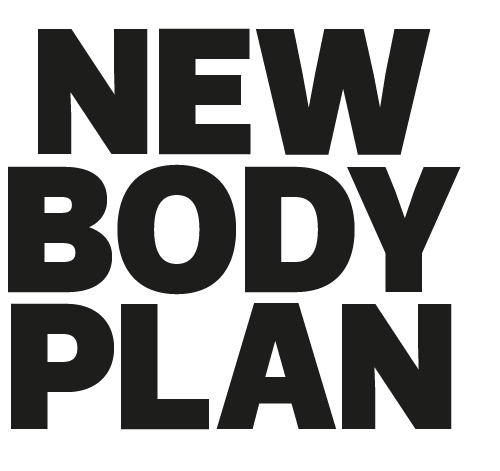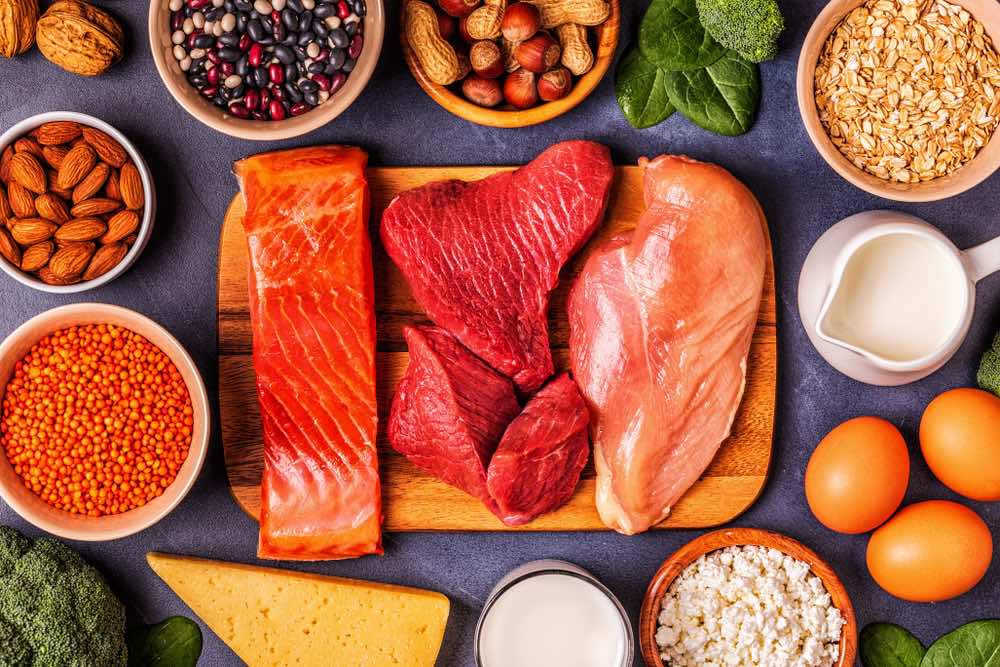Should you follow a keto diet for faster fat loss?
Fans of the keto diet say it’s the single-best nutritional approach to lose weight and feel great. But there can be just as many drawbacks as advantages, depending on your needs, goals and unique circumstances. Here’s how to know whether “going keto” is the smart move for you to get the physique and performance improvements you want, says New Body Plan editor Joe Warner
Unless you’ve been living under a rock for the last five years you’ll be aware the phrase “keto diet” is the latest in a long line of fat-loss buzzwords. Following a keto diet can offer many health benefits, including rapid weight loss and greater focus and concentration.
But there are also many drawbacks. Initial energy slumps, nutritional deficiencies, constipation and bad breath to name a few. Here’s all the expert info you need to determine whether the keto diet is the right approach to help you reach your weight-loss goal!
Find your perfect fat-loss plan!
Take the New Body quiz!
What is a keto diet?
The keto diet is a very low-carb, high-fat diet that is designed to help the body enter a state of ketosis. This means it begins to burn fat for fuel rather than carbohydrates. This diet is often used for weight loss and can also have other health benefits. These include improved mental clarity and increased energy levels.
The keto diet typically involves limiting carbohydrate intake to just a few percent of total daily calories. So you must get the majority of calories from fat and protein instead. This can be achieved by eating a diet rich in meats, fish, eggs, a variety of nuts, avocados, and healthy fats. And avoiding foods such as wholegrains, starchy carbs, and sugary processed snacks.
What are the main advantages of following a keto diet?
There are several potential advantages to following the keto diet, including rapid weight loss and improved mental clarity. Because the keto diet involves drastically reducing carbohydrate intake, it forces the body to burn fat for fuel. This can lead to very fast weight loss, especially in the early stages of the diet.
In addition, because the keto diet can improve mental clarity and focus it may increase productivity or improve cognitive function. Some people find that the keto diet can increase their energy levels and help them feel more alert throughout the day.
What are the main disadvantages of following a keto diet?
While the keto diet has many potential benefits, it also has some disadvantages. One of the biggest is that it can be difficult to follow, especially at first. That’s because drastically reducing your carbohydrate intake may result in symptoms such as fatigue, dizziness, irritability as well as a lack of focus, concentration and willpower as the body adjusts to burning fat for fuel.
No diet is any good if you can’t adhere to it for more than a few days or a week because it’s too hard. And often the best diet for weight loss is the one you can consistently stick to for a good number of weeks without too much effort.
In addition, with the diet is very high in fat it can be challenging to get enough fibre and vitamins, minerals and other nutrients that are found in certain types of carbohydrates, such as fruits and vegetables. This can result in constipation and other digestive issues. Finally, the keto diet can be expensive, as it often involves purchasing specialty foods and supplements.
Should I follow a keto diet to lose weight?
While the keto diet can be beneficial for some people, it may not be appropriate for everyone. For example, if you have a medical condition, such as diabetes, that requires you to follow a specific dietary plan then keto may not be suitable.
Additionally, if you have a history of disordered eating or if you are pregnant or breastfeeding, it is important to speak with a healthcare provider before starting the keto diet. In general, it is always a good idea to consult with your doctor or medical professional before making any significant changes to your diet.
How much fat should I eat on a keto diet?
The number of calories you need per day depends entirely on your specific needs and goals. For example, tall and muscular men need more calories than a smaller man, and a sedentary man will need fewer calories than a man who is always on the move.
Here’s a general guide to the macronutrient ratios and caloric intake of a keto diet:
Fat: 70-80% of total daily calories
Protein: 20-25% of total daily calories
Carbohydrates: no more than 5% of total daily calories
Remember that the keto diet should be well balanced and provide all the necessary nutrients. It’s important to include a variety of healthy fats, protein sources, and low-carb vegetables in your meals and snacks. You should avoid processed and packaged foods, and focus on whole, nutrient-dense foods.
Which foods are allowed on a keto diet?
The foods that are eaten on a keto diet typically include meats, fish, eggs, nuts, seeds, and healthy fats, such as avocado and olive oil. Because the diet is very low in carbohydrates, it typically involves avoiding grains, legumes, and most fruits and vegetables, as well as sugary foods and processed snacks.
Here are some examples of foods that are often included on a keto diet:
Meats: Beef, chicken, pork, lamb
Fish and seafood: Salmon, tuna, shrimp
Eggs: Whole eggs, egg whites
Nuts and seeds: Almonds, walnuts, pumpkin seeds
Healthy fats: Olive oil, avocado oil, coconut oil
It is also important to drink plenty of water on the keto diet to stay hydrated and to help your body adjust to burning fat for fuel. Additionally, some people may choose to include low-carbohydrate vegetables, such as leafy greens, cruciferous vegetables, and cucumber, in moderation on the keto diet.
Which foods aren’t allowed on a keto diet?
There are several types of foods that should be avoided on the keto diet, as they are high in carbohydrates and can interfere with the body’s ability to enter ketosis. These foods include grains, legumes, most fruits and vegetables, sugary foods, and processed snacks.
Here are some examples of foods that should be avoided on a keto diet:
Grains: Wheat, corn, rice, oats, etc.
Legumes: Beans, lentils, peas, etc.
Fruits: Apples, bananas, oranges, etc.
Starchy vegetables: Potatoes, sweet potatoes, yams, etc.
Sugary foods: Candy, cookies, cake, etc.
Processed snacks: Chips, crackers, granola bars, etc.
Alcohol: All
It is very important to avoid alcohol on the keto diet, even gin and tonic and other low-calorie alcoholic drinks. Why? Because it can contain a lot of carbohydrates and so interferes with ketosis.
Additionally, some people may choose to avoid dairy products, as they can be high in carbohydrates, especially if they are flavored or sweetened. In general, it is important to read labels carefully and to avoid any foods that are high in carbohydrates or added sugars.
The free arm workout for big and impressive biceps and triceps
Can a keto diet lead to any nutrient deficiencies?
It is possible to develop deficiencies on the keto diet if it is not planned and executed carefully. Because the diet is very low in carbohydrates, it can be difficult to get enough fibre and certain nutrients that are found in fruits, vegetables, and other sources of carbohydrates. This can lead to constipation and other digestive issues, as well as deficiencies in vitamins and minerals such as calcium, magnesium, and potassium.
Additionally, because the keto diet is high in fat, it is important to make sure that you are choosing healthy fats, such as those found in avocado, nuts, and olive oil, rather than unhealthy fats like those found in processed snacks and fried foods. To avoid deficiencies on the keto diet, it is important to plan your meals carefully, take supplements if necessary, and to talk to a healthcare provider or registered dietitian about any potential nutrient deficiencies.
Example of a daily keto meal plan
Here is a sample day meal plan for a keto diet:
Breakfast: 2-3 eggs cooked in butter or coconut oil, with diced avocado and bacon on the side.
Lunch: A large green salad with grilled chicken or salmon, avocado, and olive oil-based dressing.
Snack: A handful of almonds or macadamia nuts.
Dinner: Grilled steak or pork chops with roasted vegetables (such as broccoli, cauliflower, and bell peppers) cooked in olive oil.
Dessert: Sugar-free dark chocolate or a small serving of full-fat whipped cream.
Remember that this is just a sample meal plan and that the specific foods and quantities you choose will depend on your individual calorie and nutrient needs. It’s important to work with a healthcare provider or registered dietitian to create a keto meal plan that is right for you.
Find your perfect fat-loss plan!
Take the New Body quiz!
7 ways to eat for fat loss and get a leaner and stronger body

